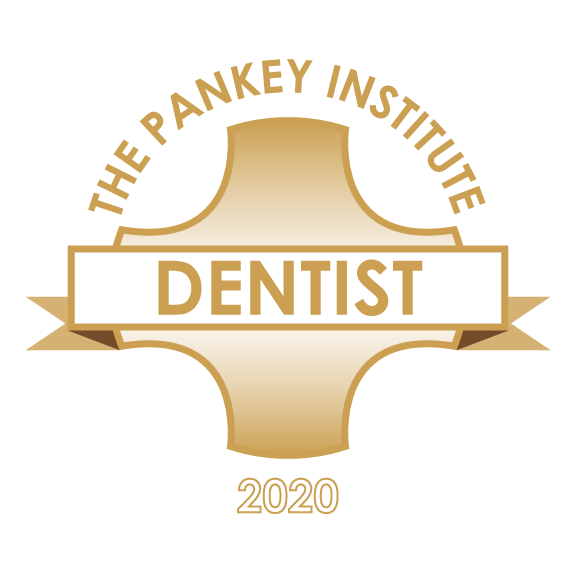

 I really felt welcomed at my appointment. I hadn't been in the office for awhile, yet I received a hug from the office staff!! I hope that I can always come to this office for my dental issues, because I just love it.
I really felt welcomed at my appointment. I hadn't been in the office for awhile, yet I received a hug from the office staff!! I hope that I can always come to this office for my dental issues, because I just love it.
Teri Sutton

Limited Adult Orthodontics
Orthodontics is the specialty in dentistry that deals with the correction of malocclusion (improper bites) and establishing proper jaw relationships. Proper occlusion can help your teeth function, protect your bite, prevent temporomandibular disorders and provide aesthetically pleasing results to complement your smile.
Dr. Cooke practices limited adult orthodontics procedures during restorative care. These include services such as fabrication of tooth positioners, retainer appliances and limited fixed bracket therapy (braces). Dr. Cooke works closely with specially trained orthodontists who provide comprehensive orthodontic treatment to dental patients in our practice that require advanced treatment.
Night Guards
Night guards are dental appliances worn to help treat a common dental condition known as bruxism or teeth grinding, which commonly occurs at night.
 During clinical examination and careful assessment at our office, Dr. Cooke visually inspects the mouth for physical indications of bruxism that appear on the teeth. Some of the signs include abnormal wear patterns on the teeth, fractured teeth, broken or worn dental restorations, tooth sensitivity, and worn tooth enamel that can expose the inner structures of the teeth and soft-tissue trauma (cheek bites, sores, areas of chronic irritation).
During clinical examination and careful assessment at our office, Dr. Cooke visually inspects the mouth for physical indications of bruxism that appear on the teeth. Some of the signs include abnormal wear patterns on the teeth, fractured teeth, broken or worn dental restorations, tooth sensitivity, and worn tooth enamel that can expose the inner structures of the teeth and soft-tissue trauma (cheek bites, sores, areas of chronic irritation).
At times, patients may experience headaches, earaches and chronic facial pain. Once the severity of bruxism is determined, Dr. Cooke will make appropriate treatment recommendations. Often this will include custom impressions and fabrication of night guards worn by the patient to minimize the damage to the oral cavity caused by bruxing.
Sports Guards
Accidents or injuries to the mouth or teeth can happen during any type of physical activity. Sports guards are mouth protectors worn by athletes that participate in contact sports (football, ice hockey, basketball), non-contact sports (gymnastics) or any type of recreational activities (skateboarding, biking) that carry the risk of injury. Sports guards can help cushion a facial injury and prevent damage to the teeth and injury to the mouth.
Over the course of many years in dental practice, Dr. Cooke has fabricated custom sports guards for athletes that range in age from youth to adult. In addition, Dr. Cooke has custom fit mouth guards for many professional athletes.
During careful examination and assessment, Dr. Cooke addresses many important issues prior to sports guard fabrication. Inquiry regarding the type of sport being played, the age of the athlete, the possibility of providing space for erupting teeth and previous dental injury experienced by the patient will occur. Based on the findings, sports guards are fabricated with the appropriate type of material for proper protection, adaptation, retention, comfort and stability.
TMJ Appliances
TMJ appliances are devices worn to help treat a variety of temporomandibular joint disorders, commonly referred to as TMD (see TMJ Therapy) Myofascial pain, or pain in the muscles of the jaw is the most common temporomandibular disorder. The etiology of myofascial pain is multifactorial and as a result TMJ appliances are varied, depending upon the severity of the problem.
The most common TMJ appliance used in the management of TMD in our office is a specific type of splint, known as the Tanner appliance. During the course of time spent at the L.D. Pankey Institute, Dr. Cooke had the distinct pleasure of training with Henry Tanner, the gentleman after whom this splint was named. A Tanner appliance is a type of stabilization splint, custom made of hard acrylic and made at our office. The Tanner appliance is designed after taking impressions of the upper and lower dental arches, face bow registration, and recording of centric relation occlusion. This data is carefully analyzed and a comprehensive diagnosis is made by Dr. Cooke so that proper treatment can begin. The goal of Tanner appliance therapy is to control the discomfort of myofascial pain and prevent derangement in the joint spaces.
During the course of therapy adjustments are made to the Tanner appliance upon examination of signs of wear on the splint. Patients are seen by Dr. Cooke at set intervals for evaluation. It should be anticipated that our patients will be in therapy wearing the Tanner appliance for at least six months.






